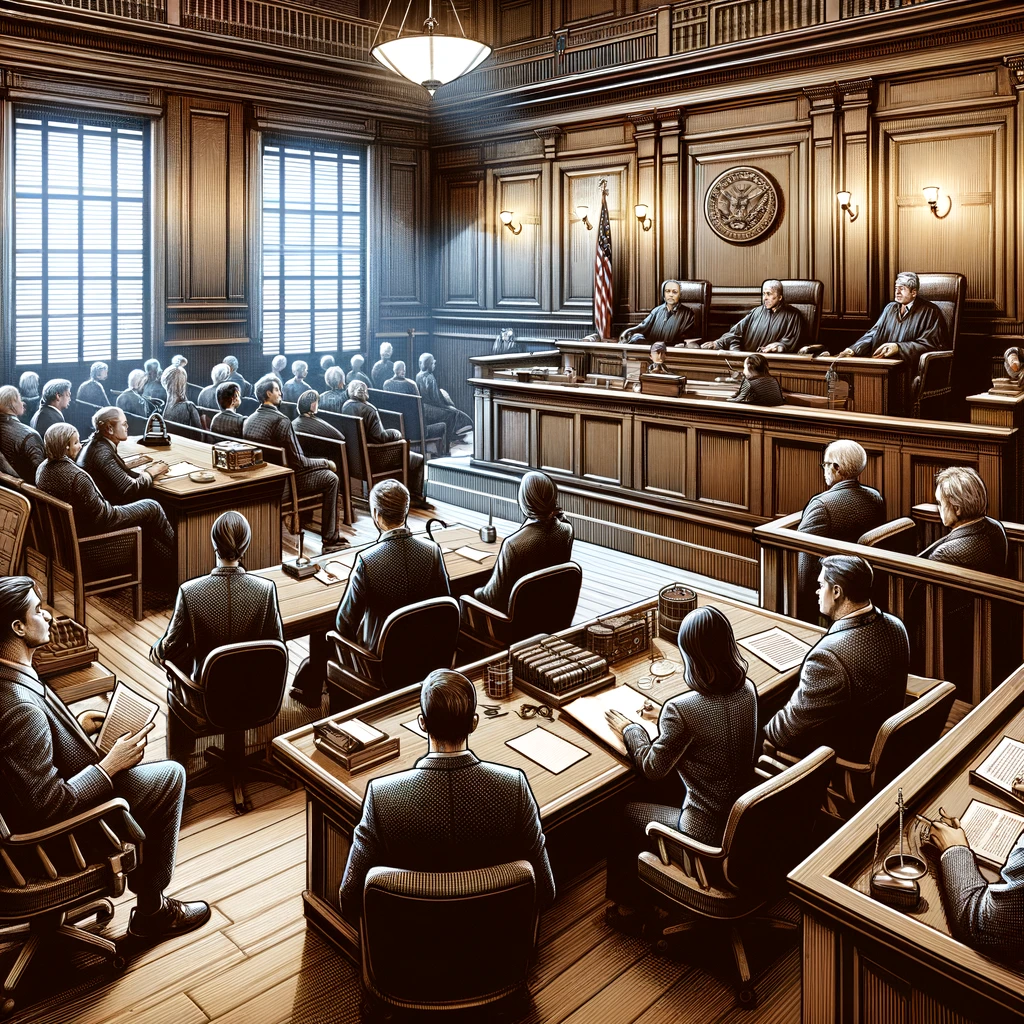What It Means to Be Convicted of a Crime: Understanding the Consequences
Understanding the legal terms related to criminal law can be confusing. However, it is essential to differentiate between being arrested, charged, and convicted of a crime within the legal system. A conviction means that a person has been found guilty of a crime beyond a reasonable doubt. This can occur as a result of a jury trial or if you plead guilty. It’s crucial to remember that an arrest and charge alone do not mean you have been convicted yet.
In Texas, a conviction will remain on your record forever unless the laws change or you receive a pardon from the governor. The only exception is for some low-level misdemeanors, which can be sealed. On the other hand, a dismissal can be expunged and removed from your record. Be sure to understand the consequences of any plea deal you accept, as some may allow for expungement, while others may lead to a permanent stain on your criminal history.
Discuss your options thoroughly with legal counsel before making any decisions. If you have been charged with a crime in Travis, Hays, or Williamson County, contact us for a free consultation.
Understanding Criminal Law
The Criminal Justice Process
Being Charged with a Crime
Being charged with a crime signifies the initiation of legal proceedings based on allegations of criminal behavior. A charge does not indicate guilt; the person is innocent until proven guilty. The police can decide to make an arrest, but you have the right to defend yourself in a court of law before receiving a sentence. The government (prosecution) must prove each element of the charge through the evidence presented. Your defense attorney can challenge the evidence presented either with a hearing infront of the judge, or by a trial in front of a judge or jury.
The Role of Reasonable Doubt and Probable Cause
Probable cause is a legal standard used in the criminal justice system to determine whether police officers have reasonable grounds to believe that a crime has been committed. It is a lower standard than “beyond reasonable doubt” Reasonable doubt is crucial in the criminal justice process, requiring the prosecution to prove the defendant’s guilt beyond a reasonable doubt.
The Role of the Grand Jury
The grand jury plays a critical role in the criminal justice system, particularly in the context of serious felonies. It is a group of citizens who are tasked with reviewing evidence presented by the prosecutor to determine whether there is probable cause to believe that a crime has been committed and that the accused person should be charged.
What Does a Grand Jury Do?
The grand jury does not decide guilt or innocence, or whether to convict. Instead, it evaluates the evidence presented by the prosecutor to decide whether there is sufficient evidence to charge the person with a crime. This process is called an indictment. The grand jury’s proceedings are conducted in secret, and the standard of proof is lower than at a criminal trial. The grand jury must find probable cause, not proof beyond a reasonable doubt.
Grand Jury Proceedings
During grand jury proceedings, the prosecutor presents evidence, including witness testimony and physical evidence. The defendant and their legal counsel do not typically have the right to present their case or cross-examine witnesses at this stage. The grand jury reviews the evidence and votes on whether to issue an indictment. If the majority of the grand jury members agree that there is probable cause, an indictment is issued, and the case proceeds to trial.
The Guilty Plea and Conviction
What is a Guilty Plea?
A guilty plea, or when a defendant agrees to plead guilty to certain charges, is a formal admission of guilt in criminal cases where the defendant acknowledges their involvement in a criminal offense. When you plead guilty, you waive your right to remain silent. It can result in a sentence and a conviction that stays on your criminal record, but a defense attorney can help ensure that any punishment fits the crime and won’t leave you with a criminal record for the rest of your life.
What is a Criminal Conviction?
A criminal conviction means that the person was found guilty in court, either in a criminal trial by a judge, a jury, or by pleading guilty (such as with a plea bargain). A conviction results in a sentence, such as probation, community service, jail time, or prison, and will remain on a person’s criminal record until the person completes the expungement process.
Consequences of a Conviction
Criminal Record and Its Long-Term Effects
A criminal conviction can have far-reaching consequences that extend beyond the trial process. It is important to understand what the a criminal record implies, how the public will view it, potential avenues for relief, and the impact a conviction can have on someone’s life. Especially for a felony offense, convictions can lead to problems finding a job, housing, and/or qualifying for other benefits.
Sentencing and Punishment
After a conviction, sentencing is the next step, where the convicted criminal is issued a formal judgment. The judgment usually pronounces the punishment, which can include time in prison or fines, probation or other penalties. This can be influenced by prior crimes on your criminal history. A clean record can sometimes mean the difference between probation and jail, or the difference between dismissal and conviction.
Conclusion
Understanding the legal distinctions and the consequences of a conviction is crucial for anyone involved in a criminal case. Legal counsel can provide valuable guidance in navigating the criminal justice system, ensuring that any decisions made are in the best interest of the person involved. If you are charged with a crime, contact our law firm for a consultation to discuss your options and protect your rights.
Contact an Experienced Criminal Defense Lawyer
Rob Chesnutt of ATX Legal has been handling criminal cases in Central Texas for nearly a decade. We handles criminal cases for clients in Travis, Williamson and Hays counties. Contact us for a no-cost consultation on your case. You can reach us by phone, text, or by filling out a contact form.



